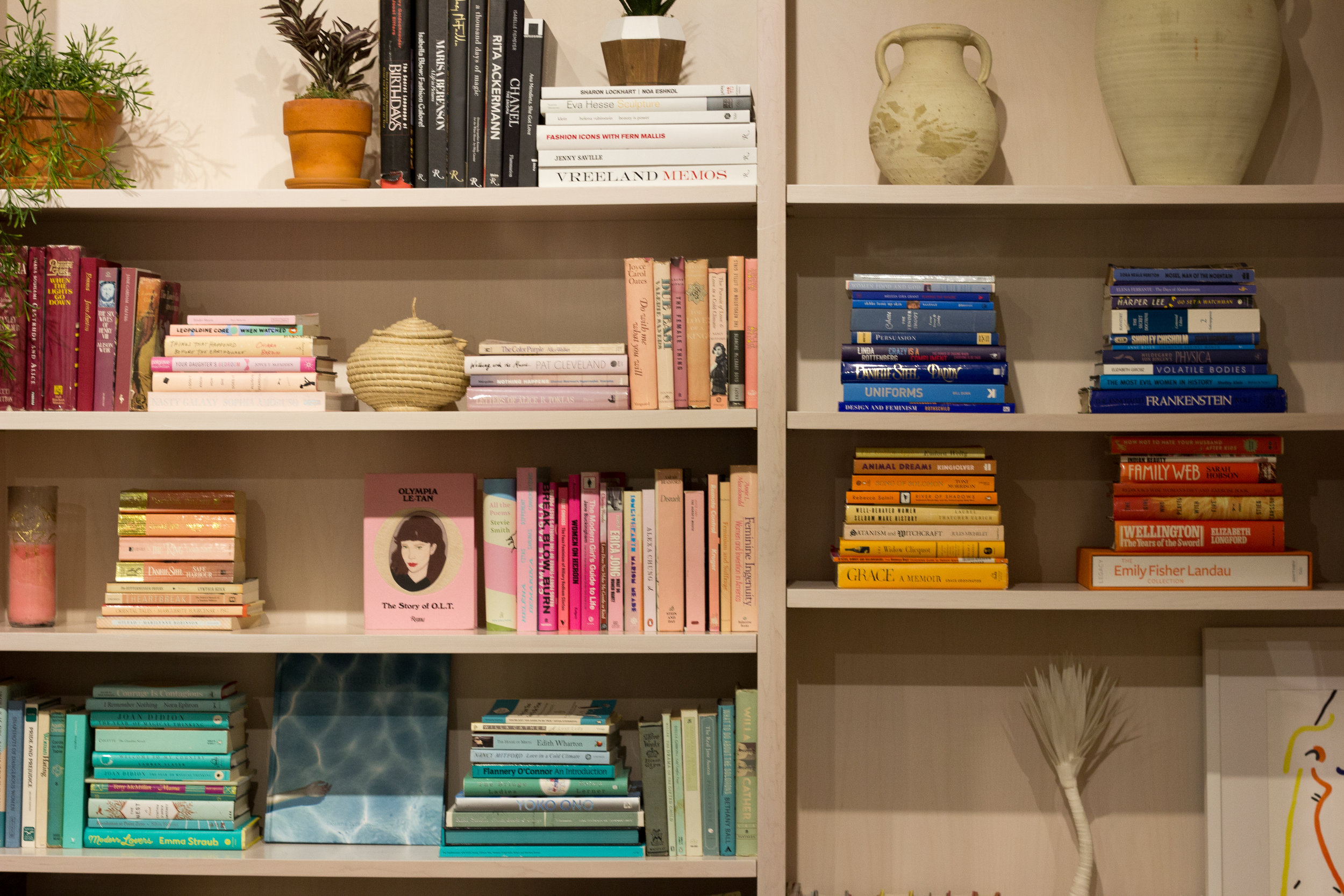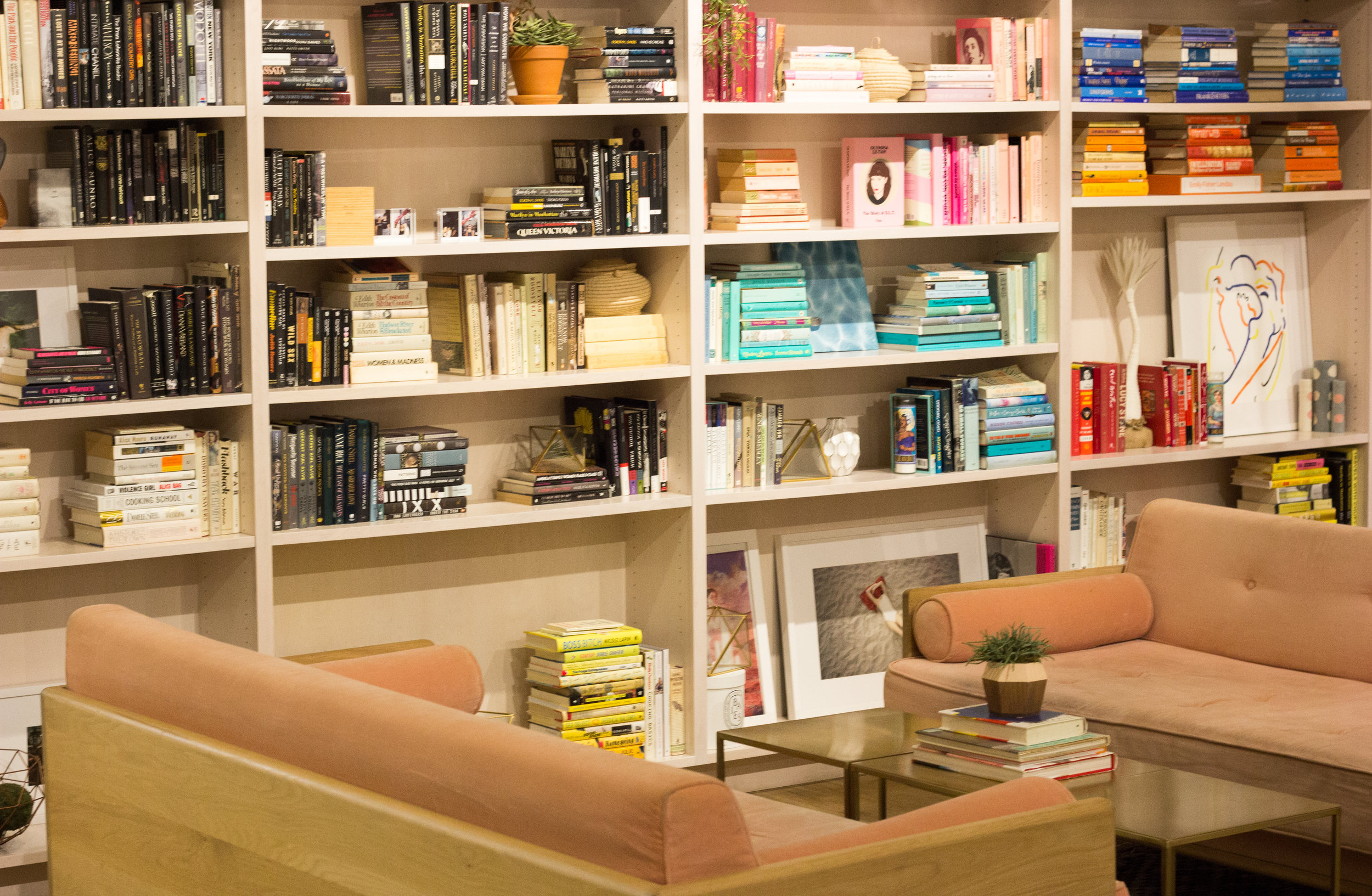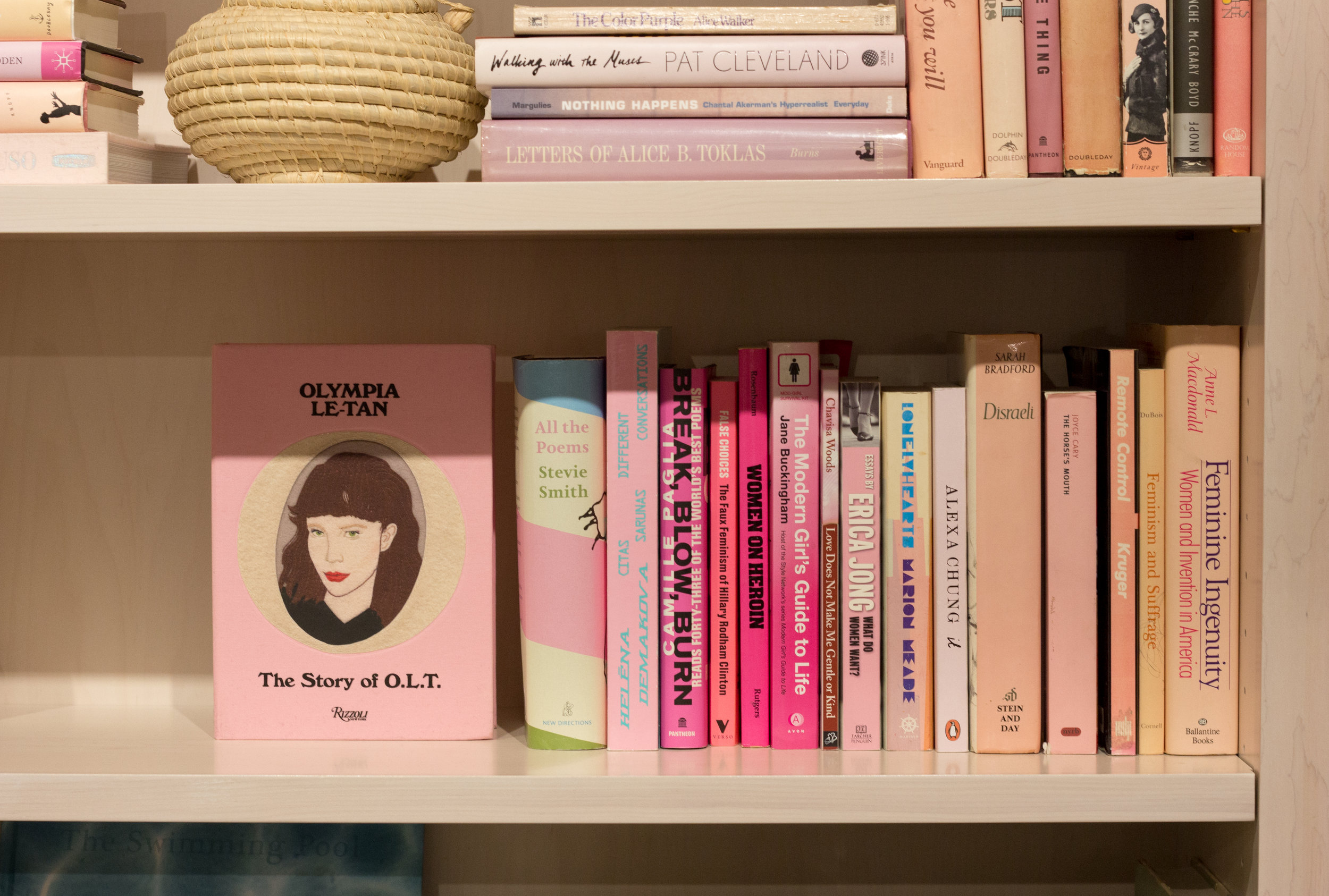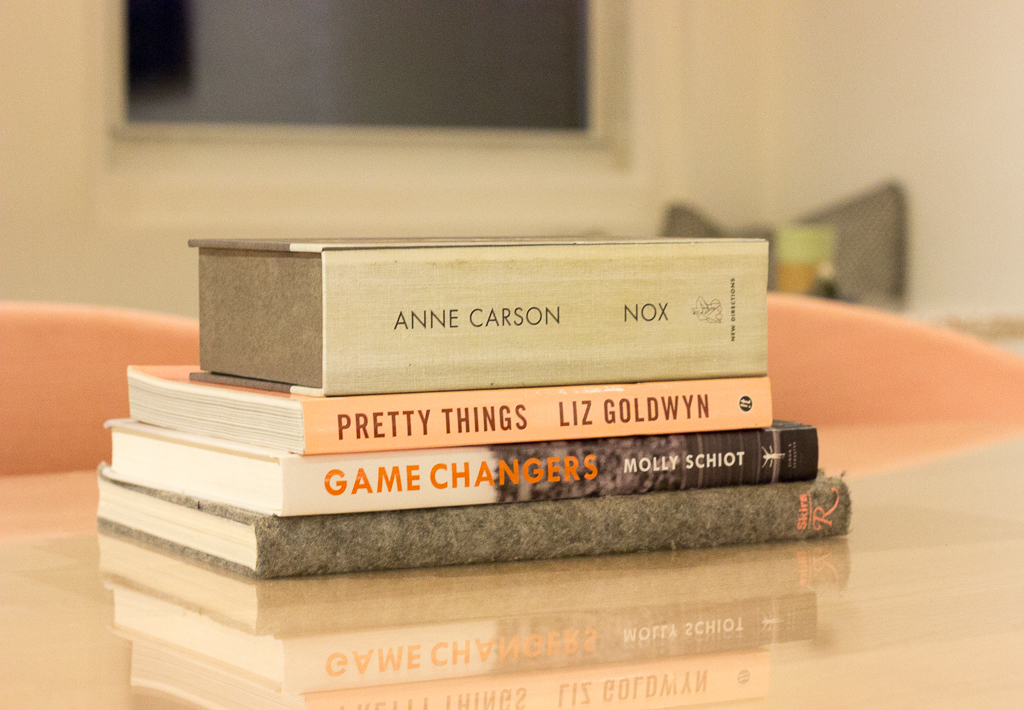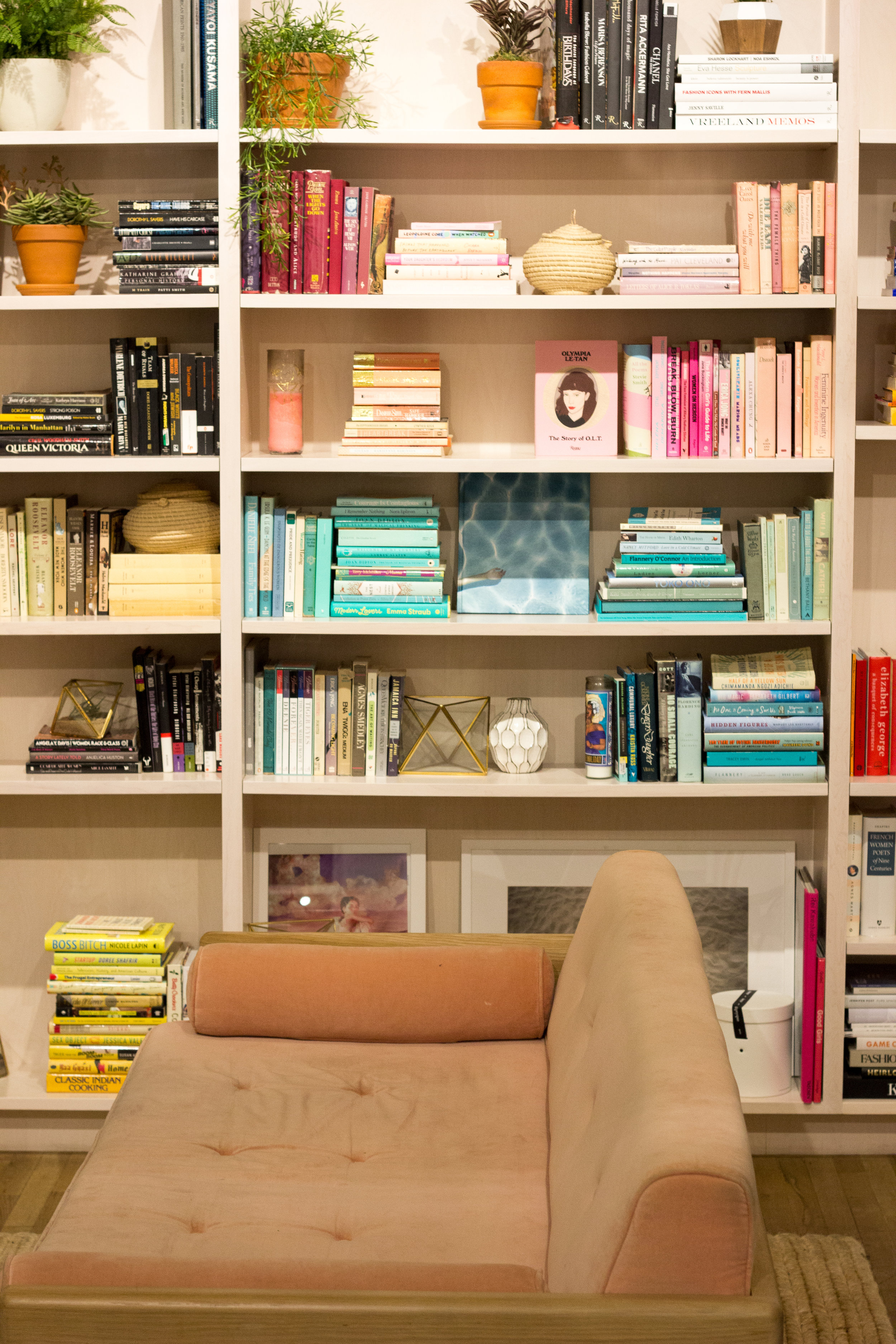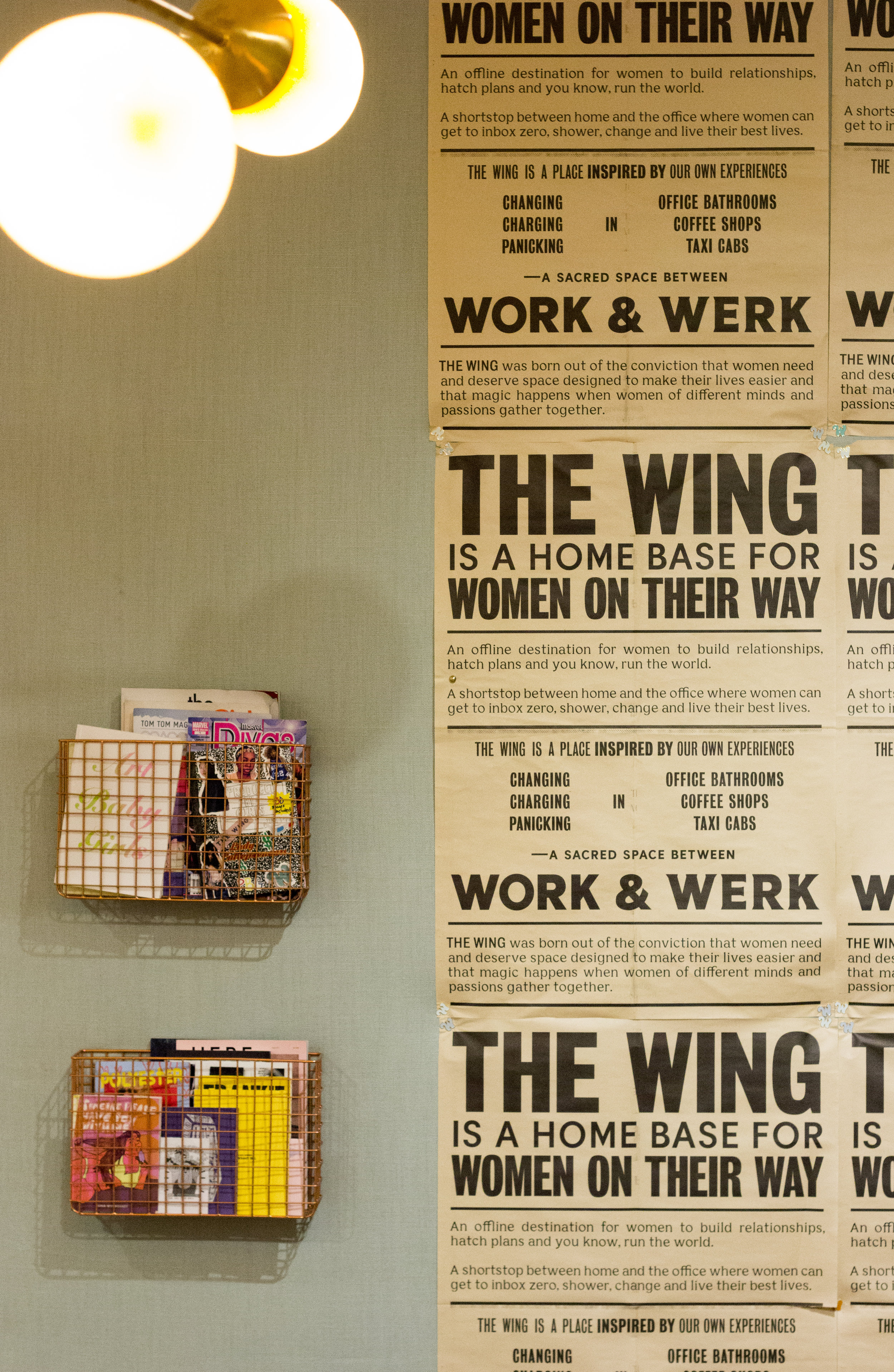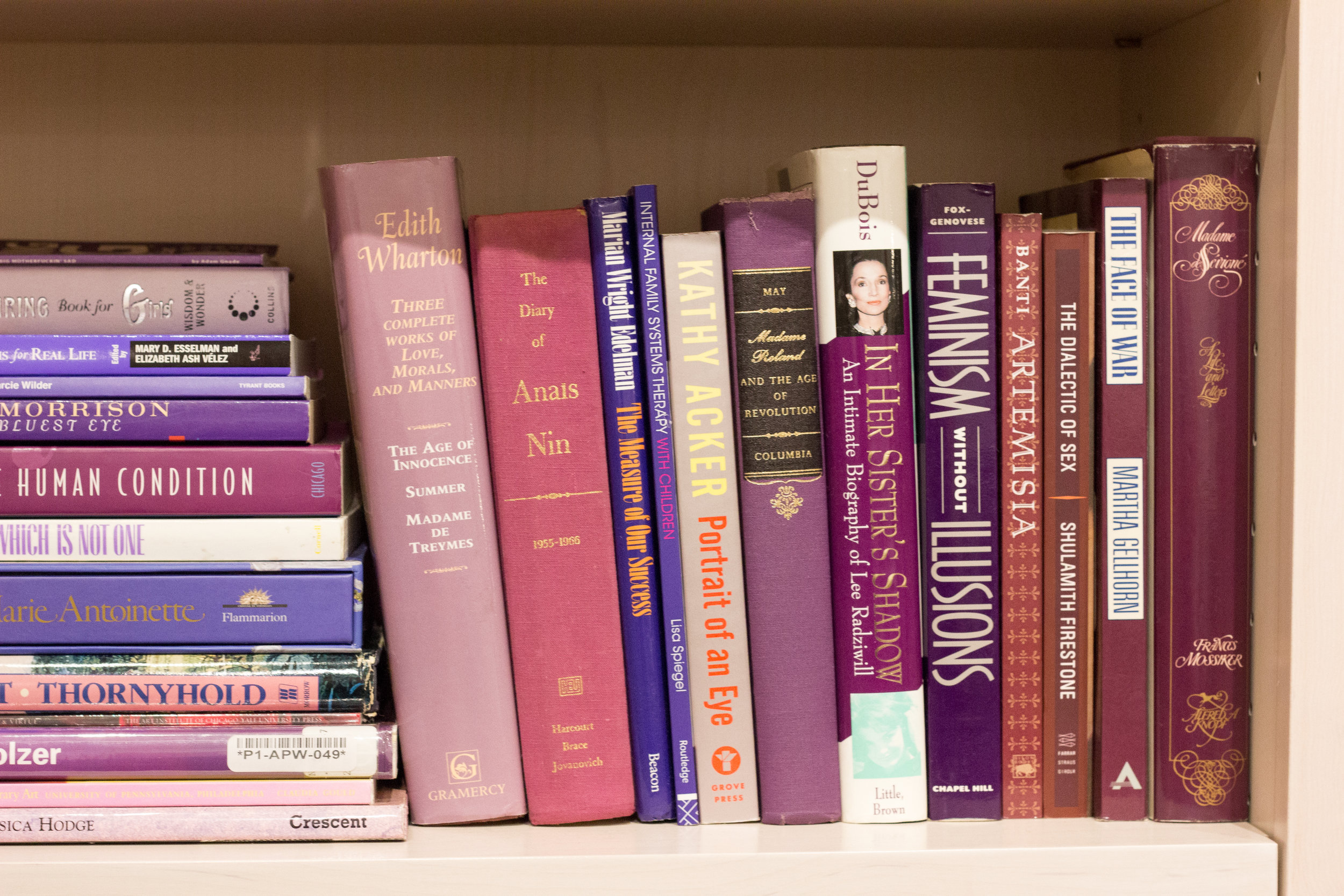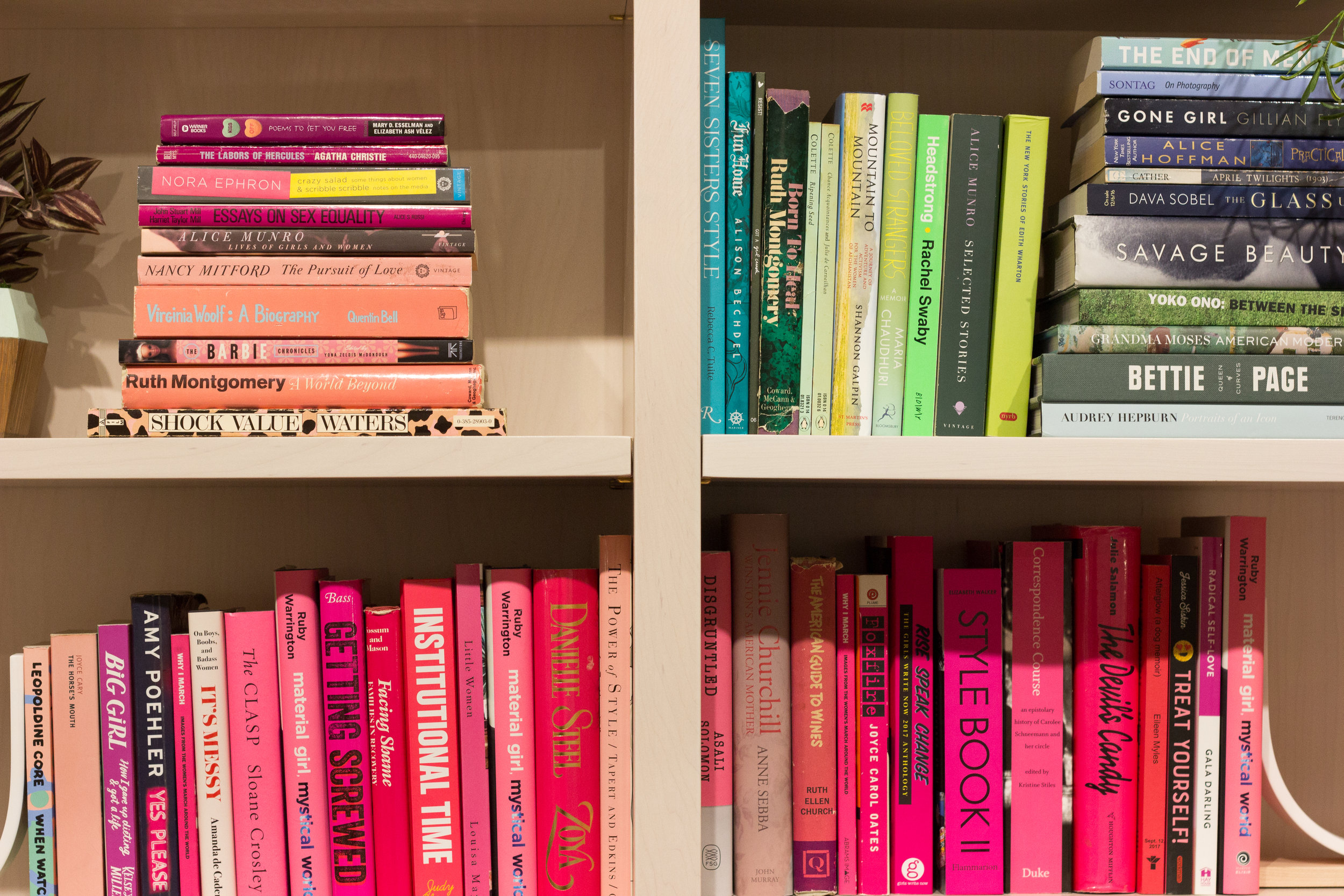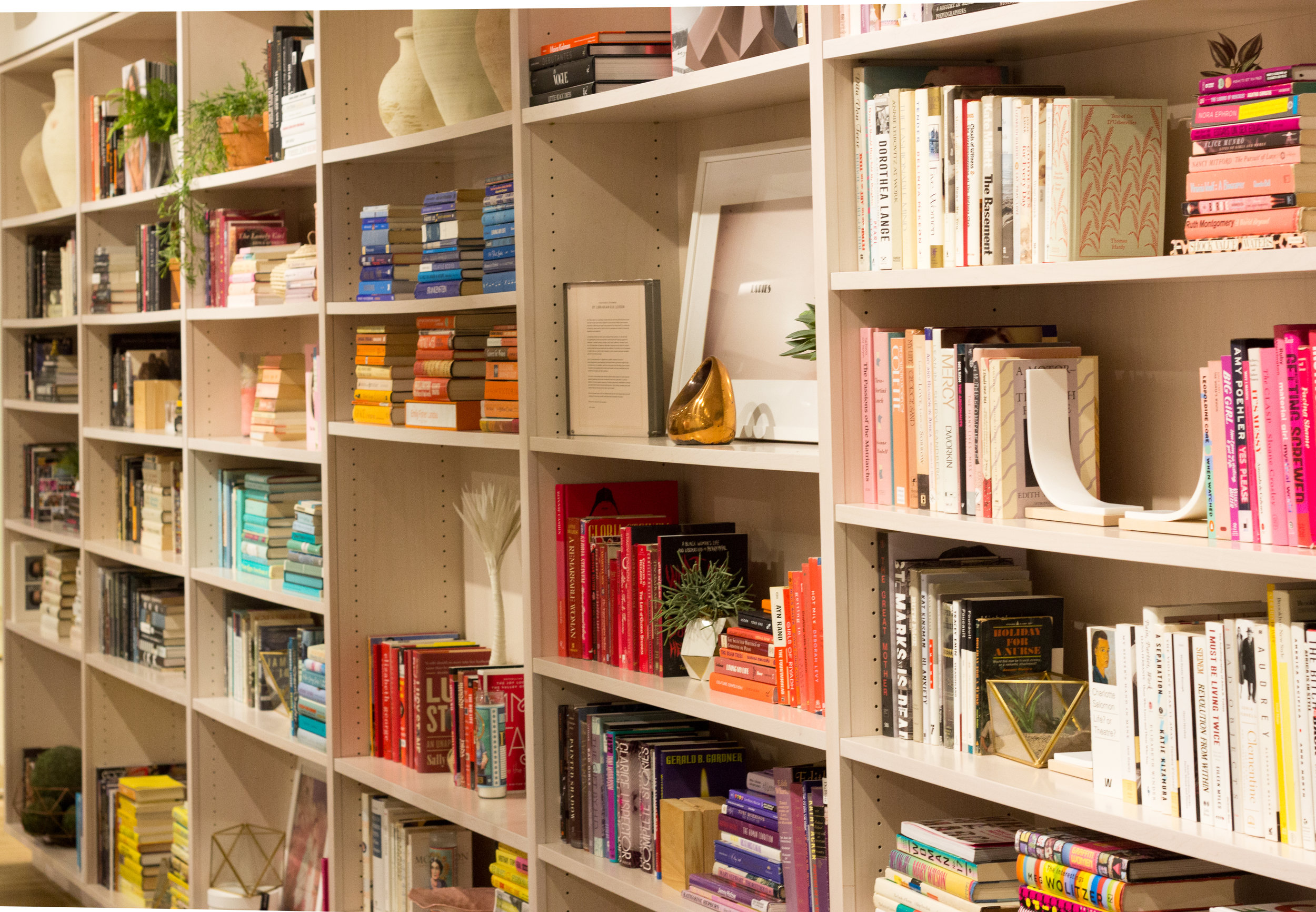The Wing Flatiron
Last month, I joined The Wing, a women’s club with locations in Flatiron, SoHo, and (soon) Brooklyn.
I have many alibis for why I joined, which I tailor to my audience at any given moment. They include: a) I’m yearning for a sense of community in this chaotic city, b) I want to have my mind expanded and views challenged by events and guests speakers, c) It has Chanel skin care products for the taking, and d) It’s hella Instagrammable. But, if I’m being honest, I basically joined so that I could routinely write this blog in proximity to the club’s incredible library.
The Wing’s librarian-in-residence is R.H. Lossin, a writer and Columbia PhD student. Her color-coordinated library is full of thousands of books written by women (and only women). Her curatorial statement reads:
“The Wing Library is a carefully curated selection of books reflecting the crucial role that women have always played in social, artistic, literary, and economic production. Reflecting the spirit and purpose of The Wing itself, it’s a collection of works by, about, and for women that our members are invited to browse for inspiration and solidarity.
Considering women on their own is always tricky territory. It runs the risk of a ghettoization and exclusion that women have been fighting against for centuries – “women” writers, “woman” artist, “lady” scientists, ‘women’s’ work, etc. The implication of separate, feminized categories within fields of cultural production is that we are measured by a different if not inferior set of standards. It implies that our work is only valuable to other women (read: less valuable) and not to society at large.
But it is only necessary to append the qualifier ‘woman’ if women’s accomplishments are exceptional (we would never say female nurse or lady schoolteacher, for example) and this is the myth that The Wing Library wants to dispel by showcasing the volume and breadth of social contributions that women have made over the centuries.
The truth is that women have always written books, made art, done research, owned businesses, led social movements, and even ruled entire countries. Women have also done a majority of the less glamorous, underpaid, or entirely uncompensated work of social reproduction – the cooking, cleaning, and child-rearing that are necessary for women to go to work.
We do not need men to fill our shelves because we have always been and will continue to be active, prolific, and important members of society.
We are the rule, not the exception.”
In an interview with Vogue, Lossin said “The fact that it is not at all challenging to eliminate men from an interesting, intellectually rigorous, and diverse library is the whole point.”
God, I love this place. Not just because it’s filled with female stories. Not just because it’s rainbow-hued eye candy. More than any other reason, I love it because I can browse it as if it were my own – grabbing, skimming, and enjoying with abandon.

